Appetite for Change: Promoting the Future of Food
High-profile leaders' values and guiding principles can serve as the model thousands of people aspire to embrace. Because their statements and actions carry significant weight, renowned individuals have the power to make positive changes in the world. Amid an heightening global food crisis, Sir Richard Branson's involvement in futuristic solutions generates growing hunger for a more responsible food system.

Through heightened exposure in both traditional and social media, renowned individuals have influence over our everyday life and over culture as a whole.
By seeing an advertisement with a celebrity spokesperson, our subconscious is registering and storing that information, and we may start associating the product with that person's attributes involuntarily. Huge corporations regularly go to influential people to endorse their products in order to obtain selling power and control over customers.
When brands have celebrity endorsements, they choose very carefully based on the public’s view on that person and what key personality traits of theirs they want to associate to their product. This link creates value in the mind of the consumer, which forms credibility and brand recognition.
When Beyoncé started promoting Pepsi in 2012, the company's sales increased almost instantly. Consumers learn to model behavior, so when they see someone as famous as Beyoncé holding a Pepsi can with a look of refreshed satisfaction, they will most probably want to have similar feelings and will ultimately purchase that product.
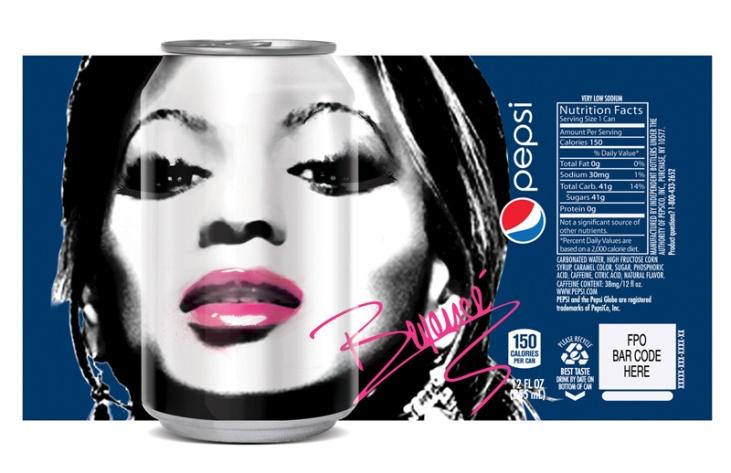
The power of celebrity endorsement is particularly observable in the food industry.
Research has shown that children are more likely to pick foods endorsed by celebrities, even when it is fruits or vegetables. In a 2012 study published in the Archives of Pediatric and Adolescent Medicine, researchers discovered that when elementary school students were given the option between cookies and apples, they were more likely to chose an apple if it was branded with a cartoon sticker, such as one of the Sesame Street character Elmo.
Whether it was the huge “Got Milk? ” campaign that had famous people promoting the benefits of dairy products for over 20 years, or Katy Perry selling the guilt-free deliciousness of Popchips, it seems obvious that renown is used to influence our choices at the supermarket.
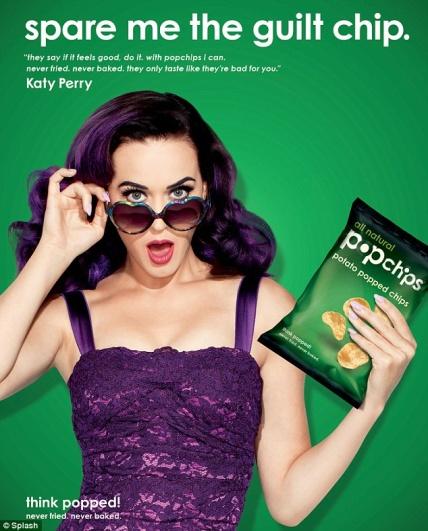
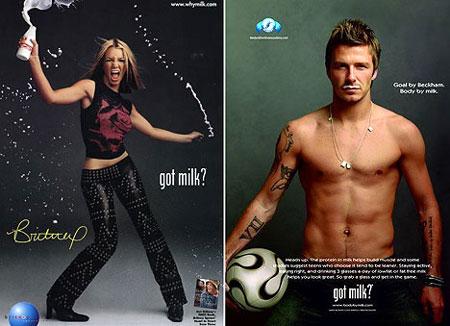
Renowned individuals have created or enhanced many diet trends over the years. For example, hundreds of people jumped on the gluten-free bandwagon after a number of public figures claimed that eliminating gluten had changed their lives for the better. Dieticians and physicians have often accused celebrities of being irresponsible in endorsing weight-loss diets that could be harmful.
Some famous individuals go beyond marketing purposes and use their influence on food choices to raise awareness about current issues and to advocate a shift toward more responsible practices.
Promoting an Innovative Food System
A growing number of wealthy and influential investors envision a very different food system than we have now. They consider that diets that rely on animal meat are unsustainable, and that we will soon have to change our habits.
Virgin Group founder and CEO Richard Branson, alongside other high-profile entrepreneurs like Bill Gates, Kimbal Musk and Kyle Vogt, recently invested in the clean meat startup Memphis Meats. This San Francisco-based company produces beef, chicken and duck directly from animal cells without raising and slaughtering livestock or poultry. The company was founded in 2015 by cardiologist Uma Valeti, stem cell researcher Nicholas Genovese and tissue engineer Will Clem. Their ultimate goal is to reduce the world's reliance on meat.
The cultured meat is made by expanding muscle cells from animals in vitro. Scientists first collect muscle stem cells or myoblasts (undifferentiated cells capable of giving rise to muscle cells) by performing a biopsy on the animal. The cells are then treated by applying a protein that promotes tissue growth, and are placed in a bio-reactor that is able to supply them with the energetic requirements they need.
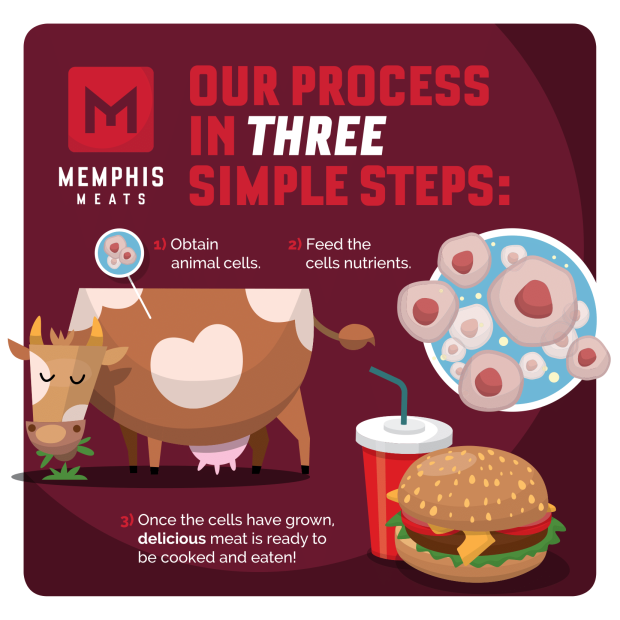
Although the recipe still needs some adjustments, such as adding fat cells to contribute to the final flavor and texture of the meat, the results are already quite impressive. The main challenge at the moment consists in scaling up the production process in order to reduce the final price of clean meat. The enterprise hopes to have a viable lab-grown meat product available to consumers within the next four to five years.
This is happening through surging demand for organic products, greater attention on animal treatment and increased focus on sustainable food. Conventional meat production creates challenges for the environment, animal welfare and human health, and the new generation of consumers is extremely sensitive to these problems. Agricultural giants have to take up alternatives to satisfy a changing customer base.
Speaking at the American Conference Institute food law conference in April 2018, vice president of product and regulation at Memphis Meats Eric Schulze stated that the company can produce up to 10 000 cows' worth of meat with one single biopsy of animal cells. It usually takes 18 months for a 1200 pounds steer to grow, and we can ultimately get about 450 pounds of meat from that animal. Considering that it is possible to have as much meat in two weeks with the biopsy, it can be reasonably assumed that clean meat production is much more efficient than raising and slaughtering animals.
Memphis Meats' total funding reached 22 million dollars in August 2017, after food industry giant Cargill and several investment firms like Atomico and New Crop Capital joined the group of investors.
In addition to financing the process, Memphis Meats' high profile backers actively promote a shift toward a cruelty-free, sustainable food system. Richard Branson is recognized for his passion in fighting climate change and protecting the environment. Since he gave up beef in 2014, many also consider him as an advocate of animal rights.
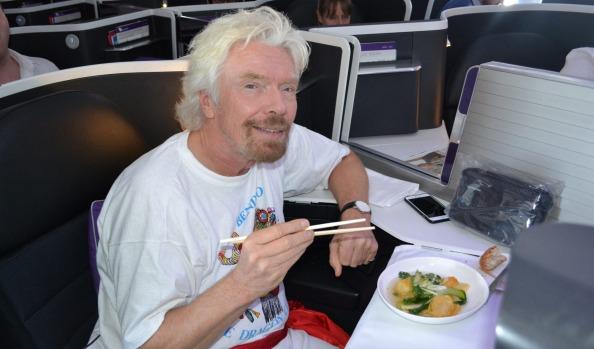
In a recent article he posted on the Virgin website, Branson expressed his vision about the future of food : “I believe that in 30 years or so we will no longer need to kill any animals and that all meat will either be clean or plant-based, taste the same and also be much healthier for everyone. One day we will look back and think how archaic our grandparents were in killing animals for food.”
In this publication, he states that meat consumption is a bigger contributor to environmental degradation and climate change than all forms of transportation. He explains that he gave up beef after realizing that modern farming causes rainforest degradation, and that the industry employs unethical farming and slaughterhouse practices.
Knowing how much influence Virgin CEO exerts on public opinion, the potential impact of these proclamations cannot be ignored. It is highly probable that this post, along with Branson's recent investments in clean meat production and promotion of a sustainable lifestyle, will result in an increased desire to reduce meat consumption and to help create a more eco responsible food system.
Some claim that Sir Richard is simply making bold predictions to support his investments. However, given his well-known climate, health and animal-conscious mind, he may very well be investing in alignment with his beliefs. While it may seem as yet another celebrity-generated food trend, the popularization of this ideology could help protect the planet and ensure a better future.
Scientific evidence supports Branson's concerns about the inefficiency of our current food system and its effects on the environment.
Environmental Impact
A 2017 study from Michigan State University reveals that conventional livestock production currently accounts for 14.5% of global greenhouse gas emissions, which makes this industry one of the largest contributing factors to climate change. Most of those emissions come from animals producing large amounts of methane, a powerful greenhouse gas.
Meat production also contributes to global warming through deforestation caused by expansion of pasture land. In Central America alone, 40% of all rainforests have been cleared in the last 40 years for cattle pasture, mostly to supply the export market.
Over 70% of the planet’s agricultural land is used to grow crops such as soy and corn to feed livestock, which leaves very few space to grow cereal and vegetables for humans. If we continue to eat meat at the same rate or if the population continues to grow as projected, the only way to feed all humans would be to clear more forests.
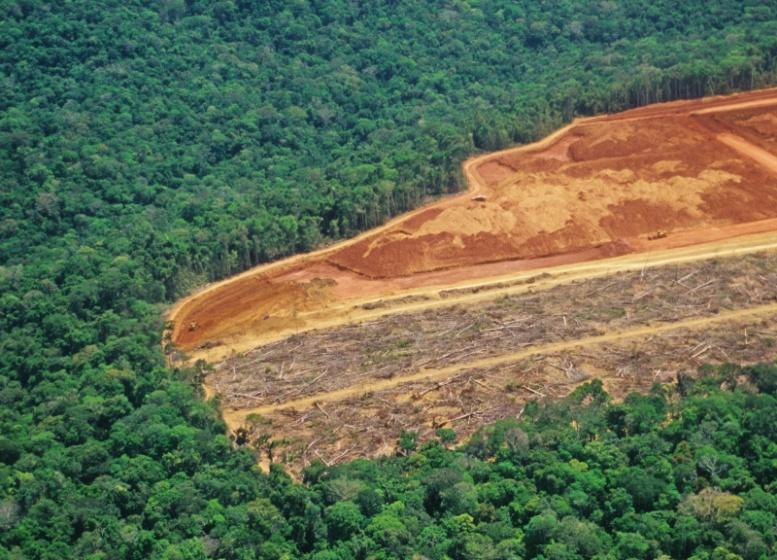
Image Credit : Conservation International
Two peer-reviewed studies conducted in 2014 calculated that without major dietary change, agricultural emissions will take up the entire world's carbon budget by 2050. This would mean that other sectors, such as energy, industry and transport, would have to use zero carbon. This is described as “impossible” by both groups of researchers.
The industry is also depleting water resources. A 2010 study from the Institute for Water Education calculated that it takes 1799 gallons of water to make a single pound of beef, compared to 297 gallons to produce a pound of rice. Animal agriculture uses about 70 % of the world’s available freshwater, and one third of that is used to grow the grain fed to livestock.
Inefficiency
The massive feed requirement of livestock animals make modern meat production unsustainable. American economist and social theorist Jeremy Rifkin explains that growing crops to feed an animal, and then eating a part of that animal, is in fact highly inefficient. This system consists in providing calories to a metabolizing, breathing, moving body, in order to get back a small fraction of those calories as meat. This inevitably results in a significant waste of energy and natural resources.
According to the Food and Agriculture Organization of the United Nations (FAO), 40 % of the food grown in the world today is used to feed animals. That percentage is expected to increase in the next 20 years, with the expansion of the global middle class who can afford to eat more meat.
Animal Cruelty
One of the main concerns regarding meat industry is that it may cause unnecessary animal suffering. This matter must be approached cautiously, as not all producers are the same, and many of them probably make sure to raise their livestock as humanely as possible. However, most of us have heard horror stories about modern meat production, in which factory farms keep tightly packed animals in prison-like cages, feeding them grains to fatten them up quickly before slaughtering them on huge production lines.
Most animal rights organizations claim that farmed animals suffer unacceptable conditions, and that extreme cruelty and abuse are the norm in factory farming. In a recent report on animal welfare in the meat, egg and dairy industries, the Humane Society of United States claims that farm animals “suffer myriad assaults to their physical, mental and emotional well-being, typically denied the ability to engage in their species-specific behavioral needs.”
This striking statement suggests that concerns about animal cruelty in the farming industry are well founded.
However, in his 2017 book New Aspects of Meat Quality: From Genes to Ethics, Professor in Food Technology Peter Purslow states that in recent years, “the science of animal welfare has made significant advances in understanding the feelings of animals in production and proposing a variety of novel practices to create a fair balance between animal needs, production costs, and consumers’ requirements.”
He explains that there is a large lack of knowledge about livestock production practices, and that what constitutes “cruel treatment” depends on people's perceptions, which result from differences in cultural, social and educational status.
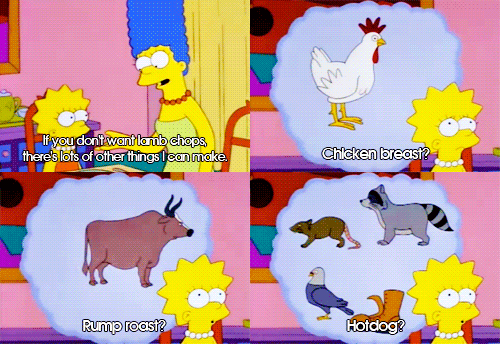
Innovative Awareness-Raising
Even if meat-free diets are more popular than ever, promotion of this lifestyle has been less successful in recent years. Many people seem to get tired of the guilt appeals used by influential people or organizations to achieve persuasive goals.
Advertisements promoting vegetarianism and veganism often focus on the harm that the meat industry inflicts on animals. People for the Ethical Support of Animals (PETA), for example, describes the conditions in which farmers keep animals to convince people to stop eating meat. The organization also promotes veganism through photos of people on a grill with the caption “Meat is murder. Try Vegan.”
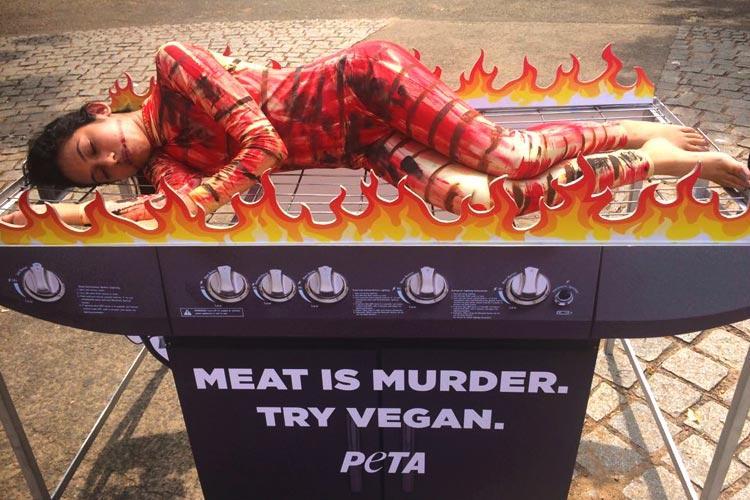
Image Credit : The News Minute
Some people possibly consider that Branson's statements fall within the same trend. Even though he may sound moralizing when promoting a reduction of meat consumption, Virgin founder's appeal clearly stands out from other awareness-raising campaigns. Instead of using guilt and sensationalism, he puts forward an innovative solution to feed the world’s population without continued negative impacts on the environment.
Rather than trying to convince people to give up meat and turn to a plant-based diet, he presents a futuristic yet achievable alternative to conventional meat production. He uses his influence to inform as many people as possible of this innovation and of what it could mean for the future.
Because veganism is not the path for everyone, it is possible to think that clean meat production is a more viable solution to change the food system. This approach can possibly help bridge the gap between meat lovers and strict vegans, and encourage people to cooperate to build a food system that is healthier for everyone.
Change for the Better
With scientific evidence showing that our food system is unsustainable and causes serious environmental damage, it becomes obvious that we need to change our habits. Giving up meat completely might not be feasible in the short term, but innovative solutions like lab-grown meat can make a significant difference.
By using his influence to promote the future of food, Richard Branson encourages thousands of people to tackle one of the biggest challenges of our time and change the world for the better.




